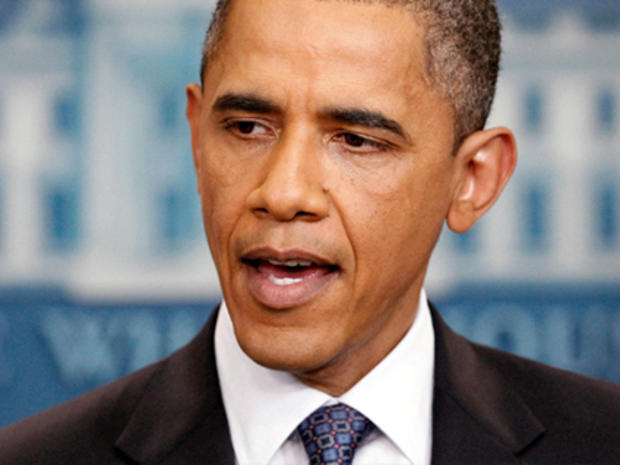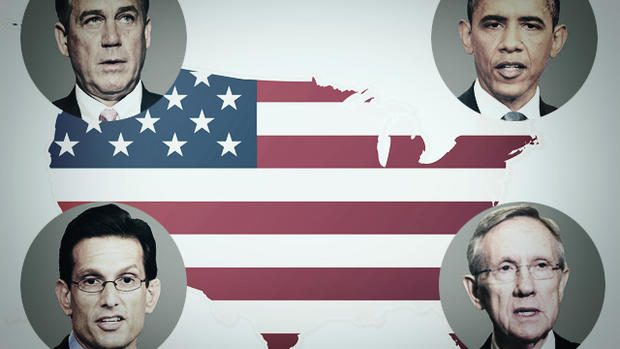Why Obama wants to avoid short-term deal on debt
If governing was as simple as deciding how to get from point A to point B (which for this purpose is, say, raising the debt ceiling), the debt ceiling legislation could be written, voted on, and signed by the president in a matter of hours.
But the fear of growing debts has made the idea of raising the debt ceiling a necessary evil, and most agree that cutting spending should be a part of the answer. And with every policy goal, there is a political goal, so yes, we all know where that has gotten us.
But let's take a quick look at the politics of raising the debt ceiling in a big way versus a short-term measure. A "grand bargain"-like package with significant spending cuts and reforms could put off another debt ceiling increase vote for years. (Reminder: Even the House GOP's Ryan plan, with its long-term spending cuts, would have required raising the debt ceiling by trillions of dollars over the next decade.)
The White House has been pushing for a deal to get through the next two years or so.
"The only bottom line that I have is that we have to extend this debt ceiling through the next election, into 2013," President Obama said on Friday night.
So why, you ask, is that his goal? Three reasons:
The first is market stability - the perilous nature of the current talks have spooked rating agencies which are threatening to downgrade the U.S. credit rating, which would spike interest rates, making it harder and more expensive for everyone to borrow money and pay back loans, especially the federal government. Preventing that possibility for as long as possible is a good thing. Stability in knowing that Washington won't be going through another debt debate again soon will help calm the market and investors.
The White House reiterated its opposition today, saying that "a short-term extension could cause our country's credit rating to be downgraded, causing harm to our economy and causing every American to pay higher credit cards rates and more for home and car loans."
No new deal after White House meeting on debt limit
A close second reason: Simply not having to go through this again. The morass that has overwhelmed Washington looks bad for all sides, and shows that the federal government is not functioning well. The president believes that going through this debate for a second time in the near future would be a futile exercise, made even more difficult by the fact of 2012 being an election year.
And third? Yes, politics. Keeping the debt and spending issue away off the front pages and out of the election season will be a good thing for the White House, just as much as getting a big debt deal done would help show that President Obama is serious about getting the nation's financial health in order.
Obama, Boehner at war over debt talk collapse
John Dickerson: Blame game over debt talks begins
CBSNews.com special report: America's debt battle
While the president may wish to avoid the politics of another debt ceiling increase until after the next election, the White House is hoping that stability in the debt issue will take away one nugget of uncertainty that could be dragging down the economy. With certainty in the markets, their hope is that the economic recovery could get back on track. They fear going through another debate like this wouldn't help.
"What we're not going to do is to continue to play games and string this along for another eight, nine months, and then have to go through this whole exercise all over again. That we're not going to do," said the president, optimistically.
After Republicans backed out of the latest rounds of talks, an angry president charged them with going for a short term goal to play politics with the debt issue.
"How serious are you actually about debt and deficit reduction? Or do you simply want it as a campaign ploy going into the next election?" he said Friday night.
Republicans this morning fired back.
"We do not know what size or shape a final package will take, but it would be terribly unfortunate if the president was willing to veto a debt limit increase simply because the timetable prescribed would not be the ideal one for his re-election campaign," an aide to House Speaker John Boehner said in a statement. "We, too, hope for the most significant deficit reduction possible, but linking the full faith and credit of the United States to presidential campaign politics is not a defensible position."
The likelihood of the Democratic-controlled Senate going along with it is a different story. But with 10 days to go, SOMETHING has to get done.


